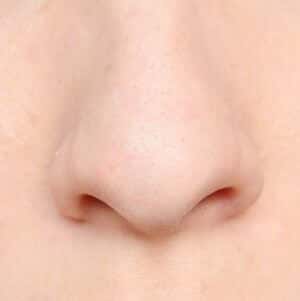
We have five senses, and the loss of any one of them can be profoundly disturbing. If you have ever had one ear blocked so that you can’t hear out of it, you will have experienced this. While visual impairment or poor hearing get plenty of attention–as they deserve–doctors often don’t know what to do if you lose your sense of smell. This has come to particular attention lately because losing the ability to smell can be an early symptom of COVID-19. Unfortunately, some nasal sprays can cause anosmia as a side effect.
Losing the Sense of Smell:
Q. I used Flonase for a stuffy nose from allergies and lost my sense of smell. I tried a natural nose spray instead.
At first, it didn’t seem to work. But today, while I was sitting in front of my computer, my sense of smelled returned suddenly. I was so shocked that I went right to a scented candle in my bathroom and could smell it. I then went through the whole house sniffing everything: fruit, flowers, even my dirty socks. What a relief to be able to smell again!
Enjoy Sniffing!
A. We are pleased to learn of your recovery. Losing the sense of smell can be quite disorienting. People have reported this symptom (called “anosmia”) as a side effect of steroid nasal sprays like fluticasone (Flonase) or triamcinolone (Nasacort AQ). Several years ago, a zinc-containing nasal gel was recalled because it was linked to anosmia.
According to research conducted by GlaxoSmithKline scientists, there is no proof that fluticasone actually causes trouble with the sense of smell (Advances in Therapy, Feb. 2, 2018). Moreover, too little is known about this problem for doctors to have developed effective treatments.
Some people are reporting a loss of smell and taste as an early symptom of COVID-19. In most cases, people regain these senses after recovery (Revue Medicale Suisse, April 29, 2020).
Citations
- Muganurmath CS et al, "Causality assessment of olfactory and gustatory dysfunction associated with intranasal fluticasone propionate: Application of the Bradford Hill criteria." Advances in Therapy, Feb. 2, 2018. DOI: 10.1007/s12325-018-0665-5
- Reinhard A et al, "[Anosmia and COVID-19]." Revue Medicale Suisse, April 29, 2020.

